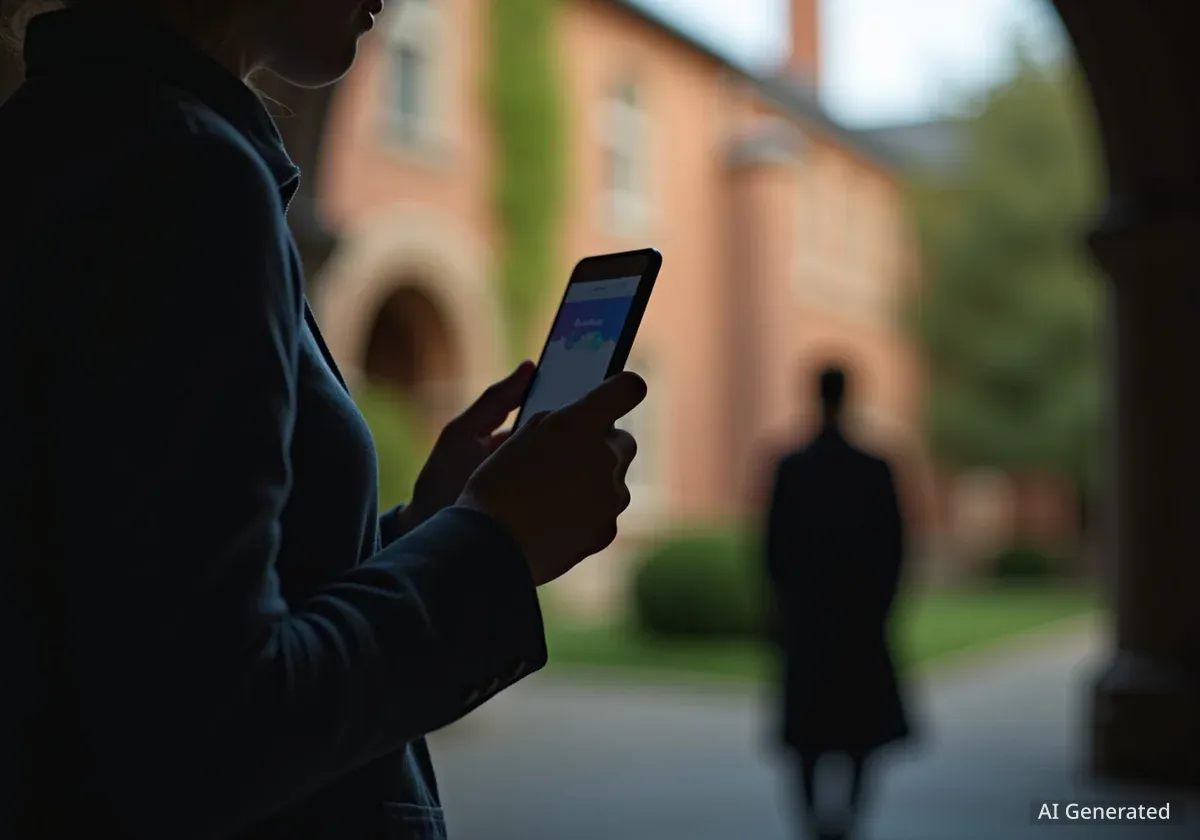A former Ball State University employee has filed a federal lawsuit against the institution, alleging her termination over a private Facebook post about a public figure constitutes a violation of her First Amendment rights. The American Civil Liberties Union (ACLU) of Indiana is representing the former staff member in the case.
The lawsuit centers on the termination of Suzanne Swierc, who served as the university's director of health promotion and advocacy. Ball State maintains that her comments caused significant disruption, justifying the dismissal, while Swierc's legal team argues her speech was constitutionally protected.
Key Takeaways
- Suzanne Swierc, a former Ball State director, was fired for a post on her private Facebook account.
- The post commented on the death of conservative activist Charlie Kirk.
- A lawsuit filed with ACLU support claims the termination violated Swierc's First Amendment rights.
- Ball State University stated the post caused "significant disruption" and was inconsistent with her role.
- The case highlights the legal complexities of public employee speech rights.
Details of the Federal Lawsuit
The lawsuit was filed on September 22 in the U.S. District Court for the Southern District of Indiana. It names Ball State University as the defendant and seeks several remedies for Suzanne Swierc. According to the complaint, she is requesting financial damages, the removal of the firing from her personnel records, and a formal declaration from the court that the university violated her constitutional rights.
Represented by the ACLU of Indiana, Swierc's case argues that as a public institution, Ball State is bound by the U.S. Constitution and cannot terminate employees for exercising their free speech rights on matters of public importance, especially when done in a private capacity.
"Although this is clearly an opinion on a controversial subject, it is fully protected by the First Amendment," the legal complaint states. "Her firing was unconstitutional."
The core of the legal argument rests on established precedent. A 1968 U.S. Supreme Court ruling affirmed that public employees retain their First Amendment rights to speak on matters of public concern as private citizens.
The Facebook Post and Its Context
The controversy began after Swierc posted her thoughts regarding the death of conservative activist Charlie Kirk. The complaint details that she made the post on her personal Facebook account, which had strict privacy settings. Her profile did not list her employer, was not searchable by name, and her posts were visible only to her approved friends.
In the post, Swierc described Kirk's death as a "tragedy" and stated she felt for his family. She also offered a critique of his political activism, writing, "Charlie Kirk's death is a reflection of the violence, fear and hatred he sowed. It does not excuse his death, AND it's a sad truth."
She also commented on the level of public attention his death received compared to other acts of violence, mentioning the killings of a Minnesota state lawmaker and children in a Colorado school shooting. "Charlie Kirk excused the deaths of children in the name of the second amendment," the post read.
Timeline of Events
- Post Date: Swierc makes the post on her private Facebook account.
- Two Days Later: The post is widely circulated on social media, leading to harassment.
- Sept. 17 (morning): Swierc reports threats to her supervisor.
- Sept. 17 (afternoon): Swierc is informed of her termination in a five-minute meeting.
- Sept. 17 (evening): Ball State releases a public statement about the firing.
- Sept. 22: A federal lawsuit is filed against the university.
Despite her privacy settings, the post was screenshotted and shared widely online. According to the lawsuit, this led to a wave of harassing messages and threats directed at Swierc through her work and personal contact information. She reported a specific threat of violence to her supervisor just hours before she was terminated.
The University's Justification for Termination
Ball State University acted swiftly. In a brief meeting on September 17, Swierc was informed of her immediate termination and given a letter signed by University President Geoffrey Mearns. The complaint alleges she was told the decision was final and could not be appealed.
Two hours later, the university issued a public statement explaining its decision. The statement asserted that Swierc's comments had caused a "significant disruption" to the university's mission and operations. It also claimed the post negatively affected her ability to perform the duties of her leadership position.
The Pickering Test for Public Employee Speech
Public employers like Ball State can sometimes discipline employees for their speech under a legal standard known as the Pickering test. This two-part test weighs whether the employee spoke on a matter of public concern against the employer's interest in maintaining an efficient workplace. If the speech is deemed to cause substantial disruption to operations, the employer's action may be found legally permissible.
"Our administration evaluated the impact of the significant disruption to the University's mission and operations and the effect of the post on her ability to perform her work in her leadership position," the university's statement read. A university spokesperson, Greg Fallon, later declined to comment further, citing the pending litigation.
Broader Implications and Public Reaction
The incident gained national attention, amplified by political figures and media personalities. Indiana Attorney General Todd Rokita publicly criticized Swierc's comments, adding them to a state-run dashboard that documents remarks from school employees. After her termination, Rokita posted on X (formerly Twitter) celebrating the university's decision.
"Other higher education institutions, as well as secondary and elementary school boards, superintendents, principals and their attorneys should take notice," he stated in a subsequent post. "We are waiting."
The ACLU argues that the university's actions were a direct result of this external pressure. Their complaint contends that Swierc's post had no connection to her employment, was not critical of Ball State, and did not impair her ability to develop health and wellness programs for students. The lawsuit concludes that her termination was based "directly and exclusively from the exercise of her expressive rights."





